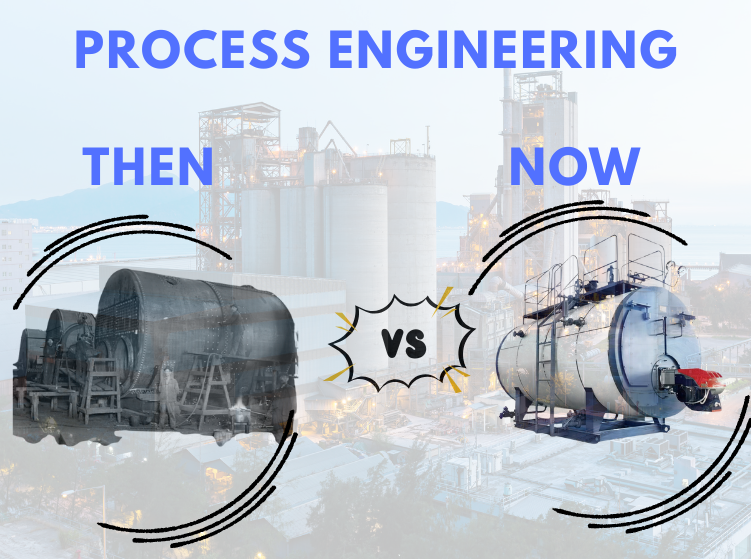Process Engineering Then vs Now: How Technology Transformed the Industry
Process engineering has undergone a revolutionary transformation. Once reliant on manual operations, intuition, and trial-and-error methods, the industry has evolved into a technology-driven powerhouse, utilizing AI, automation, and data analytics to optimize efficiency and accuracy.
The Past: Manual and Time-Consuming Processes
Decades ago, engineers worked with handwritten charts, physical inspections, and limited instrumentation. Process optimization was slow, prone to human error, and often inefficient. Diagnosing problems took days or weeks, leading to costly production delays.
The Turning Point: Automation and Digital Advancements
With the advent of computers, automation changed everything. Programmable Logic Controllers (PLCs) and Distributed Control Systems (DCS) introduced real-time monitoring and predictive maintenance, reducing downtime and improving efficiency. Engineers no longer had to rely solely on experience; technology provided them with valuable insights.
The Present: Smart Factories and AI Integration
Today, AI, the Internet of Things (IoT), and industrial robotics drive process engineering. Sensors gather real-time data, predictive analytics foresee failures before they happen, and digital twins enable virtual simulations of processes. Remote monitoring through cloud computing enhances efficiency, sustainability, and precision.
Key Technological Innovations
The modern industry now incorporates:
- Energy & Manufacturing Processes: Boilers, turbines, energy storage, reactors, and refining vessels.
- Automation & Control: AI-driven monitoring, sensors, actuators, and industrial robotics.
- Mechanical & Material Handling: Conveyors, stackers, sievers, and pulverizers.
- Pumps & Valves: Industrial pumps, compressors, and pneumatic systems.
- Safety & Quality: PPE kits, filtration equipment, and sterilization systems.
- Advanced Manufacturing: 3D printing, additive manufacturing, and AR/VR applications.
The Future: Next-Generation Advancements
Looking ahead, quantum computing, blockchain, and fully autonomous production systems will drive process engineering toward zero waste and maximum efficiency. The industry is on a path to self-optimizing factories with minimal human intervention. The future is not just automated—it’s intelligent.z
Witness the Future of Process Engineering at the 4th Edition of IPEC 2025 – Are You Ready?
The industrial landscape is evolving faster than ever. Are you prepared to lead, or will you be left behind?
Join industry pioneers at IPEC 4th Edition, the premier event for Process Engineering, Smart Manufacturing, and Industrial Innovation.
- Location: HITEX, Hyderabad
- Dates: August 22 – 24, 2025
Book Your Stall Now ; Be Part of the Revolution & Exhibit at IPEC 2025!




